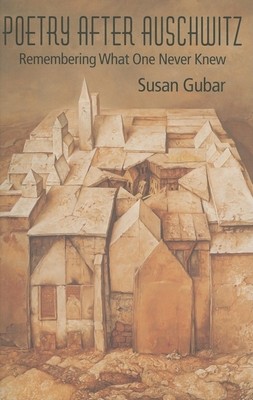
- We will send in 10–14 business days.
- Author: Susan Gubar
- Publisher: Indiana University Press
- ISBN-10: 025321887X
- ISBN-13: 9780253218872
- Format: 12.8 x 24.2 x 2.3 cm, softcover
- Language: English
- SAVE -10% with code: EXTRA
Reviews
Description
In this pathbreaking study, Susan Gubar demonstrates that Theodor Adorno's famous injunction against writing poetry after Auschwitz paradoxically inspired an ongoing literary tradition. From the 1960s to the present, as the Shoah receded into a more remote European past, many contemporary writers grappled with personal and political, ethical and aesthetic consequences of the disaster. By speaking about or even as the dead, these poets tell what it means to cite, reconfigure, consume, or envy the traumatic memories of an earlier generation. This moving meditation by a major feminist critic finds in poetry a stimulant to empathy that can help us take to heart what we forget at our own peril.
EXTRA 10 % discount with code: EXTRA
The promotion ends in 20d.22:10:26
The discount code is valid when purchasing from 10 €. Discounts do not stack.
- Author: Susan Gubar
- Publisher: Indiana University Press
- ISBN-10: 025321887X
- ISBN-13: 9780253218872
- Format: 12.8 x 24.2 x 2.3 cm, softcover
- Language: English English
In this pathbreaking study, Susan Gubar demonstrates that Theodor Adorno's famous injunction against writing poetry after Auschwitz paradoxically inspired an ongoing literary tradition. From the 1960s to the present, as the Shoah receded into a more remote European past, many contemporary writers grappled with personal and political, ethical and aesthetic consequences of the disaster. By speaking about or even as the dead, these poets tell what it means to cite, reconfigure, consume, or envy the traumatic memories of an earlier generation. This moving meditation by a major feminist critic finds in poetry a stimulant to empathy that can help us take to heart what we forget at our own peril.


Reviews